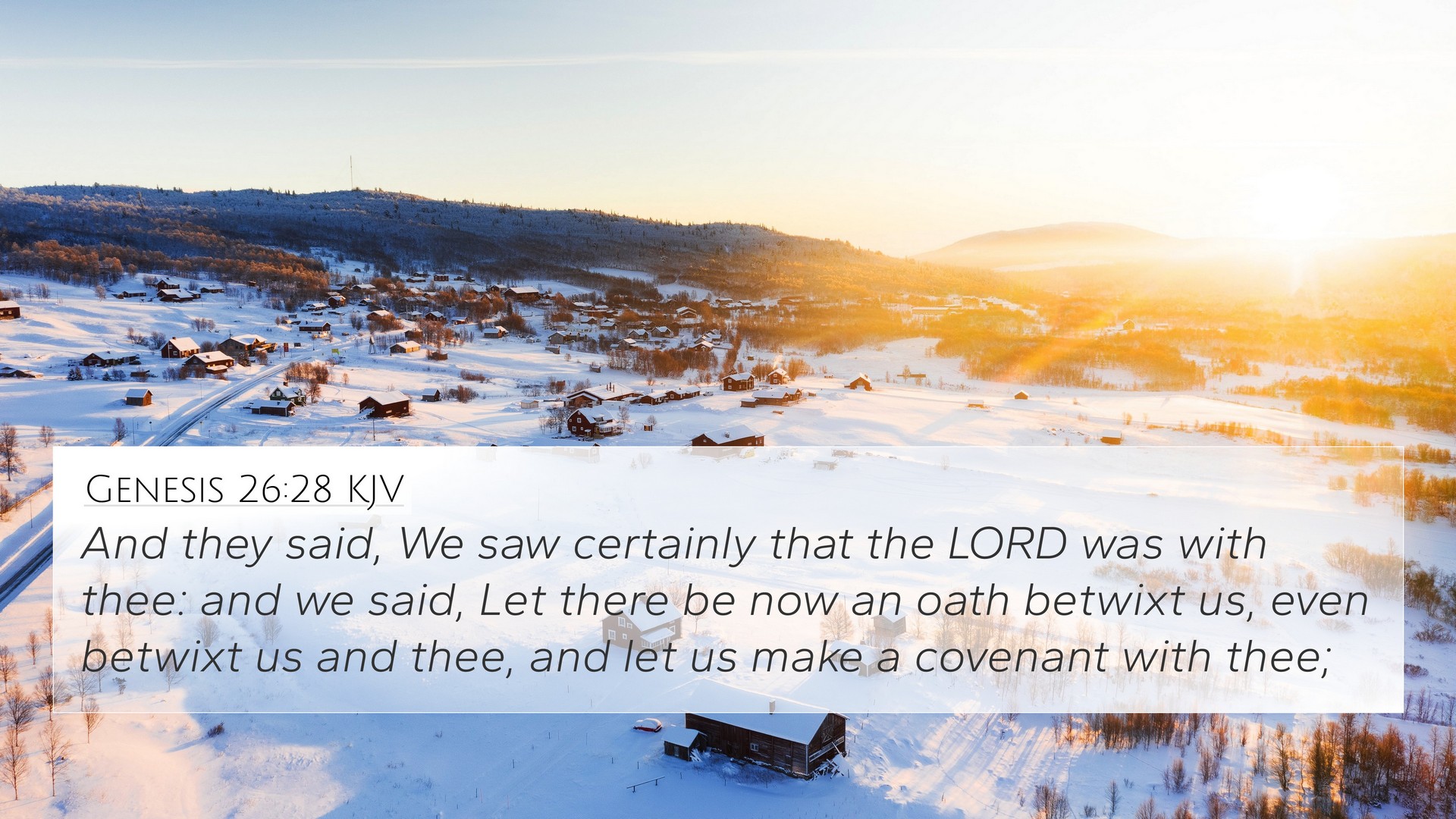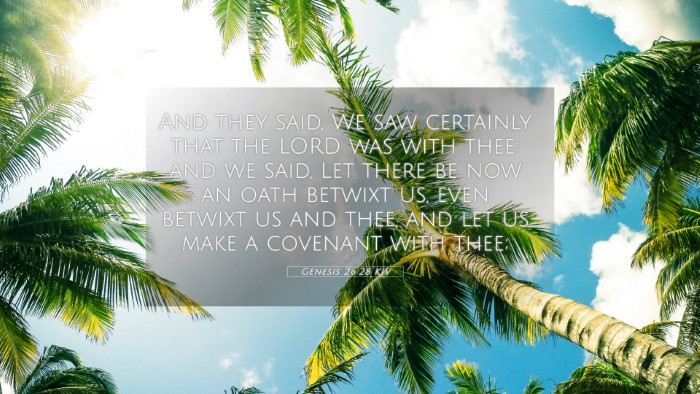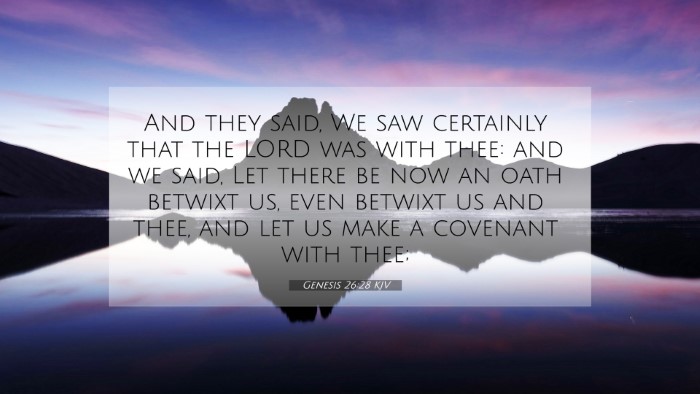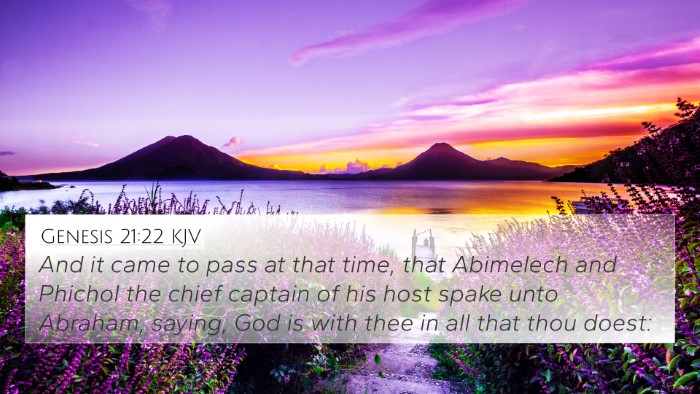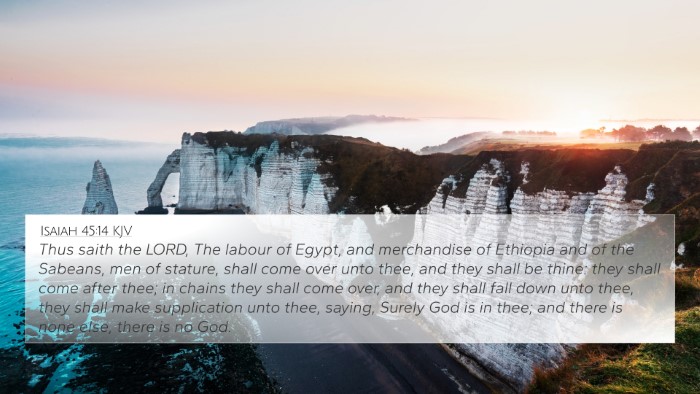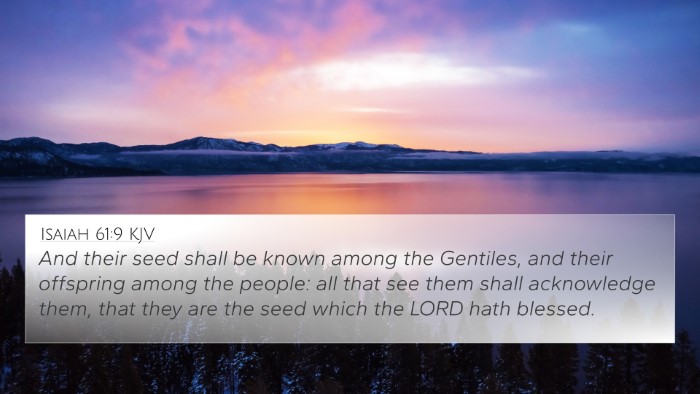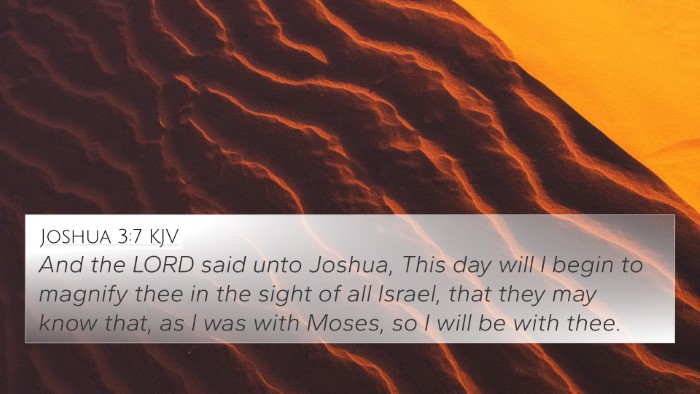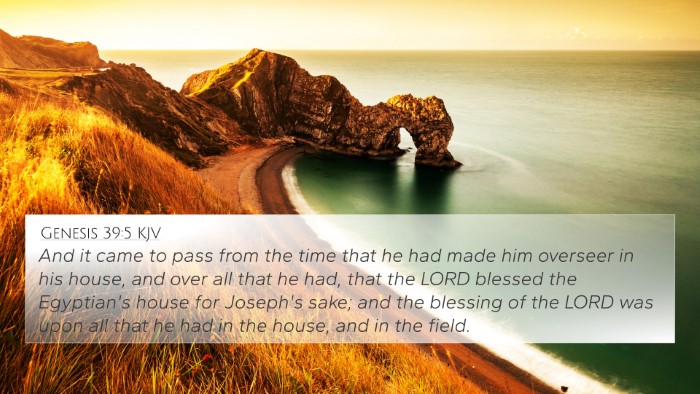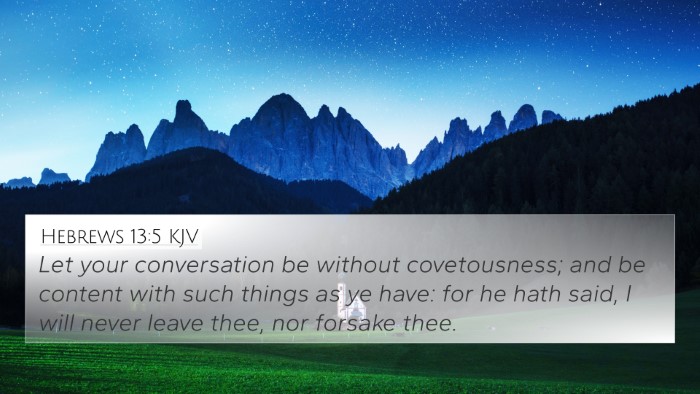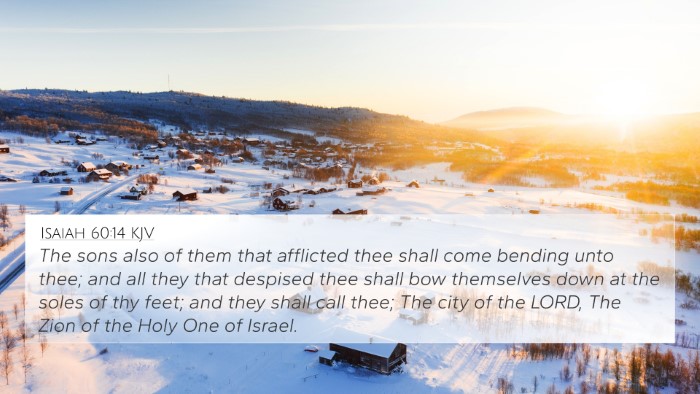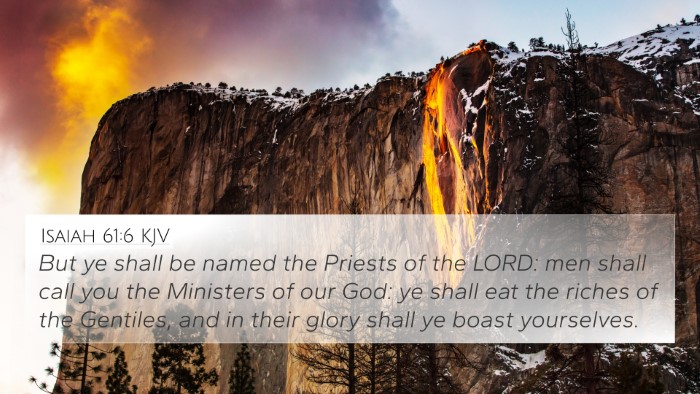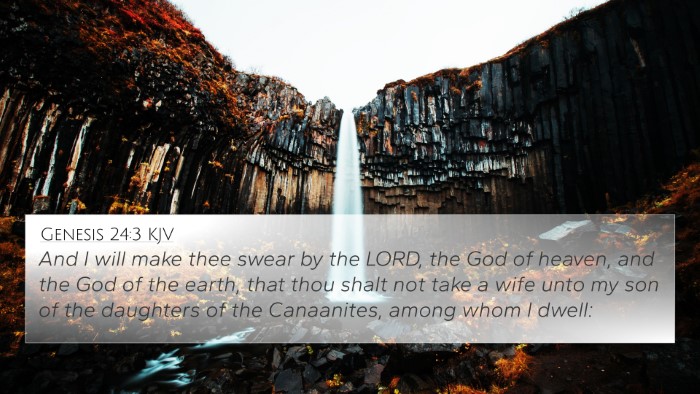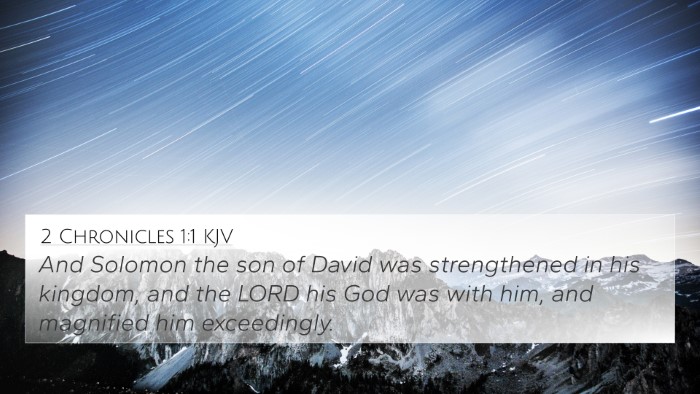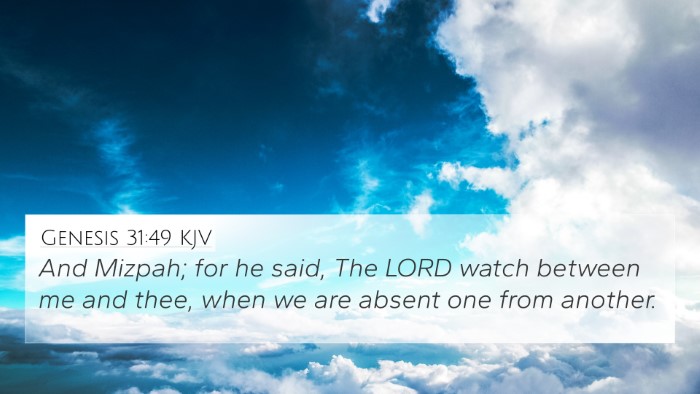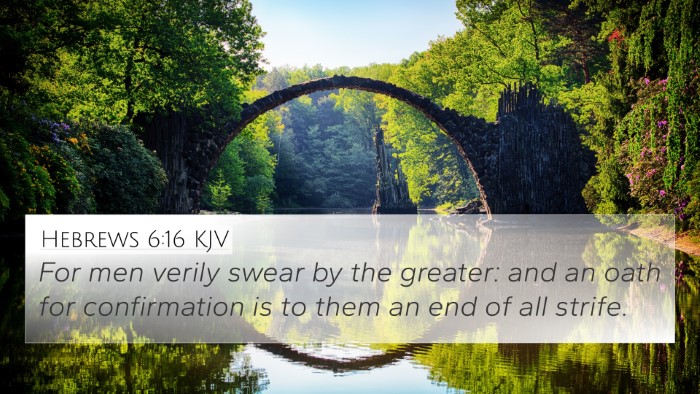Understanding Genesis 26:28
Verse Quote: "And they said, We saw certainly that the LORD was with thee: and we said, Let there be now an oath betwixt us, even between us and thee, and let us make a covenant with thee;" (Genesis 26:28)
Context and Overview
Genesis 26:28 comes in the narrative of Isaac, particularly during a time of conflict and reconciliation with the Philistines. This verse highlights the acknowledgment of God's presence and favor in Isaac's life, evidenced by the surrounding people who perceived the blessings upon him.
Insights from Public Domain Commentaries
Matthew Henry's Commentary
Matthew Henry notes that this verse illustrates the recognition of God's hand in the affairs of men. The Philistines, who had previously disputed with Isaac over wells, now perceive his prosperity as a direct result of divine favor. This acknowledgment leads them to seek a peaceful covenant, reflecting the importance of humility and respect toward those who are blessed by God.
Albert Barnes' Notes
Albert Barnes emphasizes the significance of witness in regard to God's blessings. The Philistines confess that the evident prosperity of Isaac can only be attributed to the Lord's presence. This pivotal moment suggests that the recognition of God’s work in someone's life can lead to reconciliation and mutual respect among individuals, highlighting the importance of establishing peace despite previous conflicts.
Adam Clarke's Commentary
Adam Clarke points out the strategic nature of the Philistines' confession, noting that their previous hostility gives way to a desire for a formal agreement of peace. Clarke sees this as illustrative of a greater theme in the scripture: the transformative power of God's favor, which can turn adversaries into allies. This not only serves the immediate situation but also sets a precedent for future interactions based on respect and recognition of God's authority.
Key Themes in Genesis 26:28
- Divine Favor: The acknowledgment of God's obvious presence and blessings in Isaac's life serves as a reminder that God's favor can be recognized by others.
- Reconciliation: The move from conflict to the desire for covenant illustrates the potential for healing relationships under God's guidance.
- Witness and Testimonies: This verse reminds us of the impact of witnessing God's works which can lead to transformative dialogues.
- Covenantal Relationships: Establishing a covenant signifies a commitment to peace, reflecting the biblical principle of heartfelt agreements grounded in trust and acknowledgment of God’s role.
- Interpersonal Respect: The interaction illustrates the importance of respect between individuals, especially in the acknowledgment of God's work in each other's lives.
Bible Verse Cross References
The following biblical verses relate to Genesis 26:28, demonstrating themes of divine presence, conflict resolution, and the establishment of covenants:
- Genesis 21:22-31: Abraham's covenant with Abimelech demonstrates early themes of peace and divine witness, similar to Isaac's situation.
- Philippians 4:5: "Let your moderation be known unto all men. The Lord is at hand." This connects the idea of God's presence bringing about peace among individuals.
- Proverbs 16:7: "When a man's ways please the LORD, he maketh even his enemies to be at peace with him." This verse underlines the principle that divine favor leads to reconciliation.
- 2 Corinthians 5:18: "And all things are of God, who hath reconciled us to himself by Jesus Christ, and hath given to us the ministry of reconciliation." This verse highlights the theological basis for reconciliation.
- Romans 12:18: "If it be possible, as much as lieth in you, live peaceably with all men." The spirit of seeking peace in human relationships is consistent with the message in Genesis 26:28.
- Matthew 5:9: "Blessed are the peacemakers: for they shall be called the children of God." This beatitude connects to the theme of seeking harmony through divine acknowledgment.
- Hebrews 6:16: "For men verily swear by the greater: and an oath for confirmation is to them an end of all strife." This reflects the cultural practice of making covenants in the biblical context.
Conclusion
Genesis 26:28 encapsulates profound truths about God's presence and the transformational impact it can have on human relationships. As we explore the connections between this verse and other scripture, we uncover a rich tapestry of themes regarding divine favor, reconciliation, and the profound impact of covenantal relationships. For those interested in Bible verse cross-references, this analysis enriches understanding by showing how connections between Bible verses reflect God’s overarching narrative of peace and favor throughout scripture.
